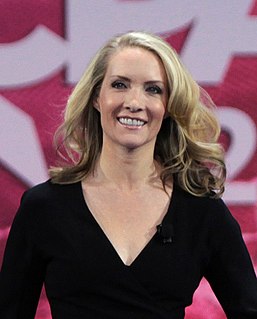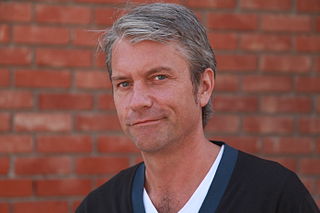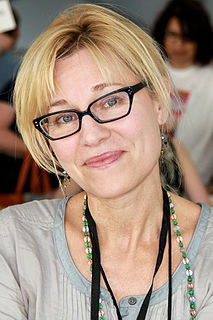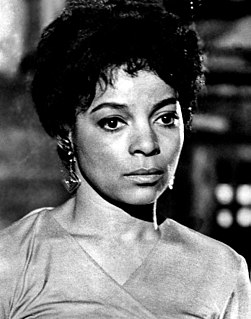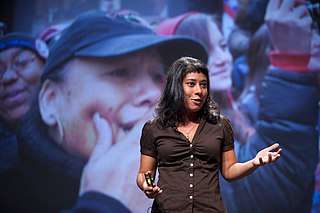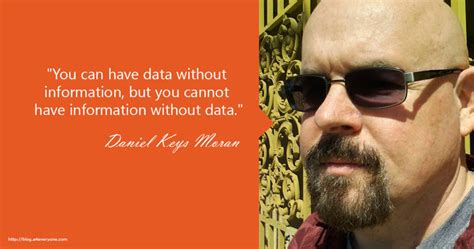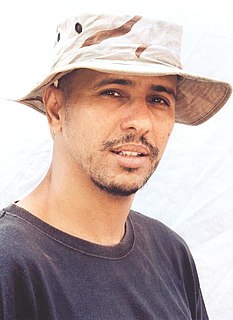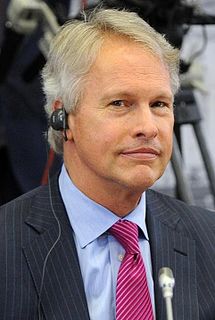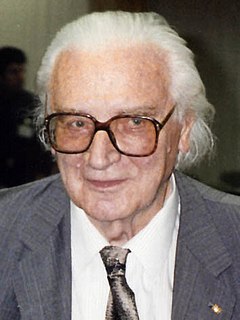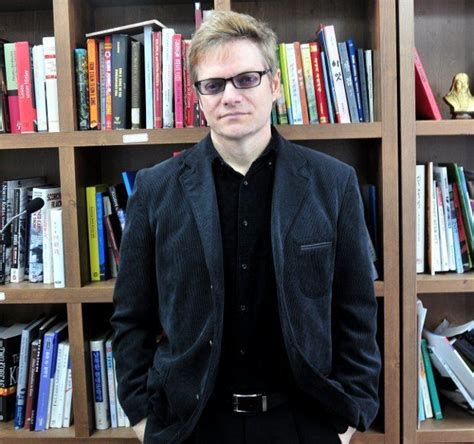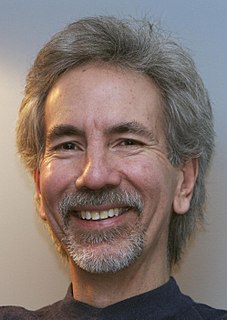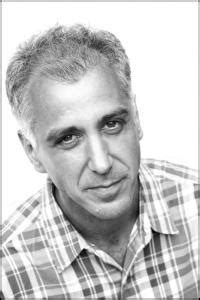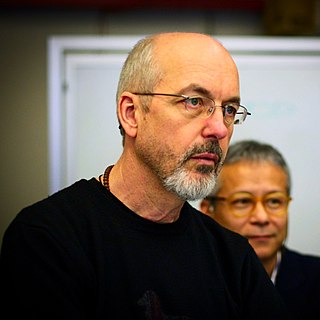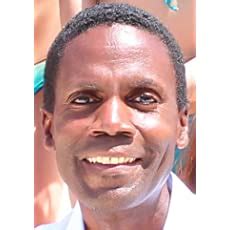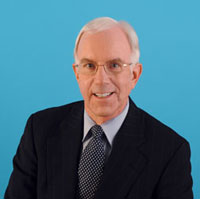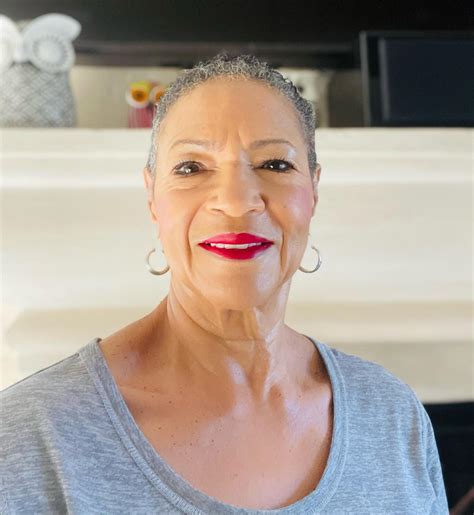Top 1200 Classified Information Quotes & Sayings - Page 16
Explore popular Classified Information quotes.
Last updated on November 17, 2024.
Schools are designed on the assumption that there is a secret to everything in life; that the quality of life depends upon knowing that secret; that secrets can only be known in orderly successions; and that only teachers can properly reveal these secrets. An individual with a schooled mind conceives of the world as a pyramid of classified packages accessible only to those who carry the proper tags.
I hope what I do when I draw from other people's lives is pay tribute. To try to understand what it means in our society to be silenced. To try to understand how class and gender intersect with that. To try to understand how being named and classified within the context of psychiatry can intersect with all that, as well.
War is an extraordinary condition to be in - to be, for example, in the combat information center of a warship [and behaving] as though you were merely processing credit card applications. [Instead,] the information you're processing is that an incoming missile is 15 kilometers away, now 10 kilometers away, now 5 kilometers. You have to separate yourself psychologically from the fact that your mortal existence may well end. That is the ancient reality of war.
If we were given one word of information in our entire history, how we'd treasure it! how we'd pore over ever syllable, divining it's meaning, arguing its importance; how we'd examine it and wring every lesson we could from it. Yet today we have trillions of words, tidal waves of information and the smallest detail of every action our government and businesses take is easily available to us at the touch of a button. And yet...we ignore it, and learn nothing from it. One day we'll die of voluntary ignorance
I think that I would really like at first for the art to speak for itself. I don't see the need for a lot of personal information about my past or who I am. I would rather the personal side of it just be in the concepts and the genuine feelings that I filter through my work. I know that it's inevitable that people can find whatever they want about me. Once I've had a chance to create a language and a world with my art, then I'm more comfortable sharing that information.
To an extent that undermines classical standards of science, some purported scientific results concerning 'HIV' and 'AIDS' have been handled by press releases, by disinformation, by low-quality studies, and by some suppression of information, manipulating the media and people at large. When the official scientific press does not report correctly, or obstructs views dissenting from those of the scientific establishment, it loses credibility and leaves no alternative but to find information elsewhere.
The thing on cyber-security. Yes, it was - every government employee goes through this training. You do hear at corporations, as well. In addition, everybody that works at the State Department that has a clearance has to sign a document that says that they got a briefing on how to handle classified info. Hillary Clinton is the secretary of state. She makes a terrible, reckless decision, and it almost ruined her candidacy.
Users socialize to figure out what they're going to do on the weekend. They use MySpace to discover new music and post events. Musicians upload their music. People use it for entertainment purposes or to sell goods in the classified area. MySpace makes what they do in the offline world a) more efficient or b) more interesting.
She was brilliant and joyous and she believed- probably correctly- that libraries contain the answers to all things, to everything, and that if you can't find the information you seek in the library, then such information probably doesn't exist in this or any parallel universe now or ever to be known. She was thoughtful and kind and she always believed the best of everybody. She was, above all else, a master librarian and she knew where to find any book on any subject in the shortest possible time. And she was wonderfully unhinged.
Everything which might cause doubt about the wisdom of the government or create discontent will be kept from the people. The basis of unfavorable comparisons with elsewhere, the knowledge of possible alternatives to the course actually taken, information which might suggest failure on the part of the government to live up to its promises or to take advantage of opportunities to improve conditions--all will be suppressed. There is consequently no field where the systematic control of information will not be practiced and uniformity of views not enforced.
There's a bigger question again about how to do prevention. It's not simply about putting out the early warning. The early warning was put out on Abyei; everybody knew that this was coming. This was intentional, and still it happened. So this idea that we fail to stop these things because there's not awareness about them, or that we need better early warning information, I'm increasingly skeptical of. I think it's about how you move that information into the policy process.
As for whether genre considerations influence what I write, they don't at all, but I might sell more books if they did. The Night Journal is a hodge-podge of historical fiction, western, mystery, and contemporary domestic drama. It doesn't settle into a specific market, reviewers have a hard time describing it, and sometimes it gets classified weirdly in bookstores. But from a writer's standpoint, I like that it's hard to categorize.
The aim of scientific thought, then, is to apply past experience to new circumstances; the instrument is an observed uniformity in the course of events. By the use of this instrument it gives us information transcending our experience, it enables us to infer things that we have not seen from things that we have seen; and the evidence for the truth of that information depends on our supposing that the uniformity holds good beyond our experience.
The information revolution has changed people's perception of wealth. We originally said that land was wealth. Then we thought it was industrial production. Now we realize it's intellectual capital. The market is showing us that intellectual capital is far more important that money. This is a major change in the way the world works. the same thing that happened to the farmers during the Industrial Revolution is now happening to people in industry as we move into the information age.
I think (fantasy football) has become something that needs to be looked at in terms of regulation. Effectively, it's day trading without any regulation at all. When you have insider information, which has apparently been the case, when you have people who use that information, use big data to try and take advantage of it, there has to be some regulation. If they can't regulate themselves, then the NFL needs to look at moving away from them a little bit, and there should be some regulation.
We're not seeing, you know, dozens of reporters being beaten up. And there may be more attention to it than there has been in the past. But it is important to recognize that the democracy depends on reporters asking people in power questions, so that the general public has information. We can't really self-govern unless information is widespread. And, sometimes, reporters have to be a little aggressive. I mean, you know, the reporter didn't beat up the politician. The politician beat up the reporter.
The point I'm trying to make is if these networks of communication technologies are owned, monetized, surveilled, and classified by those with power - very few people, mainly white men in Silicon Valley - then it is a global village build upon the ideas, visions, words, and protocols of the few. So it's not global - it's like Epcot center. It's like Disneyland: a small worldview of the larger world.
Of the seven billion people who reside on planet Earth, only 25% could, in the broadest sense of the word, be classified as "Christian" (and the percentage who have personally trusted in Christ for salvation is much smaller), meaning that over five billion people in the world are destined to hell if indeed Christ offers the exclusive path for salvation. To many people, such a claim is offensive.
See, I don’t expect to win a prize for stoic control and dignity at mourning time. Death deserve tantrums. Beating back shocked indignation, kicks in the groin, stones, classified unacceptable, not to be tolerated, not to be wooed, not to be conspired with. Only then can music, dance, movies, plays, rap be about life. Only then can life be cherished and adored.
If there is no honesty, there is no relationship. The only degree to which there is a relationship is the degree to which you are honest. Expressing your clear desires does not make you a dictator and you telling what you think, feel, and what you want or don’t want, is just called being honest. It doesn't control him at all. You’re trying to control others by withholding information by not getting involved and by not being honest. Withholding information is a form of manipulation. It is dishonest and it’s destructive to a relationship.
It is important to remember that value investing is not a perfect science. It is an, with an ongoing need for judgment, refinement, patience, and reflection. It requires endless curiosity, the relentless pursuit of additional information, the raising of questions, and the search for answers. It necessitates dealing with imperfect information - knowing you will never know everything and that that must not prevent you from acting. It requires a precarious balance between conviction, steadfastness in the face of adversity, and doubt - keeping in mind the possibility that you could be wrong.
Everything a detainee says is classified. Detainees cannot talk to you. They cannot talk to anyone. They cannot challenge, in a meaningful way, their detention. All that is left is for people who survived Guantanamo Bay to speak for people who are left behind, and speak for those who are in so many Guantanamos, plural, in my part of the world.
Making information free is survivable so long as only limited numbers of people are disenfranchised. As much as it pains me to say so, we can survive if we only destroy the middle classes of musicians, journalists, and photographers. What is not survivable is the additional destruction of the middle classes in transportation, manufacturing, energy, office work, education, and health care. And all that destruction will come surely enough if the dominant idea of an information economy isn't improved.
It [knowledge] is clearly related to information, which we can now measure; and an economist especially is tempted to regard knowledge as a kind of capital structure, corresponding to information as an income flow. Knowledge, that is to say, is some kind of improbable structure or stock made up essentially of patterns - that is, improbable arrangements, and the more improbable the arrangements, we might suppose, the more knowledge there is.
A romance novel is more than just a story in which two people fall in love. It's a very specific form of genre fiction. Not every story with a horse and a ranch in it is a Western; not every story with a murder in it is a mystery; and not every book that includes a love story can be classified as a romance novel.
I follow many tragedies around the world. At one point I [will] feel like I've accumulated an enormous amount of information, a critical mass amount of information, and I feel like acting - reacting. My manifesto has always been the same: I cannot act in the world before understanding the world. I will not move a finger. I will not come up with any ideas - nothing - until I actually understand what is happening.
Christmas was on a Sunday in 2005, which had a greater than expected negative impact on retail and classified advertising during the last weekend of our fiscal year. In addition, our California papers had held up well in automotive advertising, but the industry-wide decline in this category reached them in the fourth quarter as well.
Of course, we knew that the official reports were sketchy, if not falsified. But, in terms of information theory, this is precisely where the problem lay: How were we to reconstruct reality from incomplete or false reports? It is not true that virtually all news in a totalitarian state is false. On the contrary, most news is completely correct, albeit tendentiously slanded; it is just that certain information is suppressed. One can adjust for the political slanting of the news, but there is virtually no way to fill in the omissions.
Contemporary technology could be used to eliminate ownership and management of corporations. It could be used to provide - lets say Apple computers. In principle information technology could be used to provide direct information to the work force on the ground so that they could democratically decide what the company would do, eliminating the role of management. It could be used for that. People aren't developing technology for that purpose.
Are you conscious of the restful influence which the stars exert? To me they are the most soothing things in Nature. I am proud to say that I don't know the name of one of them. The glamour and romance would pass away from them if they were all classified and ticketed in one's brain. But when a man is hot and flurried, and full of his own little ruffled dignities and infinitesimal misfortunes, then a star bath is the finest thing in the world.
It is true that ADs do not get a chance to get a chance to create or produce, almost never, because it's whole separate thing. Most creative producers you have to come up on the development side, you work with agents, you work with writers, you're in the office and then the AD's are on the set. But it's a real shame because part of - no decision in producing can be made correctly unless you have all the creative information you need but you also have all the budget and scheduling information you need.
The Baathist state did two things extremely well. One was create information-gathering intelligence networks and a filing system. There's actually a lot of information on a lot of people and that is a major achievement of a police state. The second one is the promotion of literature and poetry, and the arts generally. So this is a state that's producing mass police archives - surveillance - and poetry. And in fact a lot of the archives are about what poets are writing or what they should be writing.
While big business gain subsidies and political access, small businesses drown in red tape, and individuals now risk being classified as terrorists for complaining about it. Economic globalisation is about homogenising differences in the worlds' markets, cultures, tastes and traditions. It's about giving big business access to a global market.
The truth is that even in the information age, information is not enough. if all we needed were ideas and positive thinking, then we all would have had ponies when we were kids and we would all be living our "dream life" now. Action is what unites every great success. Action is what produces results. Knowledge is only potential power until it comes into the hands of someone who knows how to get himself to take effective action. In fact, the literal definition of the word "power" is "the ability to act."
So she [Hillary Clinton] wouldn't intentionally put the nation at risk. She wouldn't intentionally traffic in top secret stuff. And besides, not all this stuff we deal with is that classified anyway. So here's the president [Barack Obama], very powerful, intimidating guy, [James] Comey works for him, the president's been out there saying he didn't think Hillary did anything wrong.
We do know from our intelligence community that Russia had a design to discredit the U.S. elections, and took sides in favor of Mr. Donald Trump over Hillary Clinton. We do now that they engaged individuals and entities to do cyber-attacks to get as much information as they possibly could, and of course, also used WikiLeaks to accumulate information, and released it in a strategic way that could affect our election, and certainly the credibility of our election.
Life cannot be classified in terms of a simple neurological ladder, with human beings at the top; it is more accurate to talk of different forms of intelligence, each with its strengths and weaknesses. This point was well demonstrated in the minutes before last December's tsunami, when tourists grabbed their digital cameras and ran after the ebbing surf, and all the 'dumb' animals made for the hills.
When examining evidence relevant to a given belief, people are inclined to see what they expect to see, and conclude what they expect to conclude. Information that is consistent with our pre-existing beliefs is often accepted at face value, whereas evidence that contradicts them is critically scrutinized and discounted. Our beliefs may thus be less responsive than they should to the implications of new information
The great challenge facing us today is to learn once again how to talk to one another, not simply how to generate and consume information. The latter is a tendency which our important and influential modern communications media can encourage. Information is important, but it is not enough. All too often things get simplified, different positions and viewpoints are pitted against one another, and people are invited to take sides, rather than to see things as a whole.
I do go back to Ireland, and I'll probably be doing a film in Ireland in January, and I guess that kind of keeps me classified as 'the Irish actor,' but the last four or five projects that I've been in are either American or English, so I don't feel terribly trapped in that. But sometimes, yeah, you would like to not be called 'the Irish actor.' You'd prefer to just be called 'the actor.'
Darwin was one of our finest specimens. He did superbly what human beings are designed to do: manipulate social information to personal advantage. The information in question was the prevailing account of how human beings, and all organisms, came to exist; Darwin reshaped it in a way that radically raised his social status. When he died in 1882, his greatness was acclaimed in newspapers around the world, and he was buried in Westminster Abbey, not far from the body of Isaac Newton. Alpha-male territory.
My sense, and I'm sort of guessing, is that the journalists were being classified by the government as common criminals, and the political prisoners were so resistant to being that. Always keeping [the other prisoners] as murderers, thieves, that sort of thing, which has a certain irony to it, I guess. It's a curious thing.
Fifty years from now I don't think optical realism is going to be an issue in visual communication any more. Experience is so much richer than light falling on your retina. You embody a microcosm of reality when you walk down the street - your memories, your varying degrees of awareness of what's going on around you, everything we could call the contextualizing information. Representing that information is going to be the main issue in the years ahead - how the world meets the mind, not the eye.
I tend to share whatever I know in general. I've never been a person to horde information for the sake of my own skin, you know what I mean? Not share so somebody doesn't take your job, I've never had that kind of insecurity. I also had a management company, too, so we were always one of those companies that shared information with our artists. Whatever they wanted to know, as much as they wanted to know, they could know.
It is a little bit difficult to talk about things that do involve classified matters in public. But I think the public needs to know that there are multiple oversight layers, including the FISA Court, congressional oversight, internal oversight within the FBI and intelligence community, that protects Americans from - under - their - their privacy rights while targeting terrorists and people who are trying to kill us.
New online formats gutted the newspaper-ad business. Why pore over tiny print looking for a job in the want ads when you can tap a few keywords into monster.com, then click through and apply? Why pay a steep per-character rate for a classified when you can hawk a whole garage full of used stuff on EBay or Craigslist for free?
I think I'm a reporter's editor. Being a good reporter is a specific skill, one I admire and don't possess myself - I appreciate people who know how to ask the right questions, who are excellent researchers, who know how to assemble information, and I enjoy working with them to shape their information into an article. Good reporters tend to be receptive to editing, and to a more collaborative form of writing in general, and you always end up learning more from how they work than you expect you will.
If you're frustrated by a music industry that seems too hard to break into, you're not alone. The BIG secret is information...It's not who you know, it's what you know. People who know how to put their music out make money. People who don't know how, have to beg others to help them. It's as simple as that. HipHopBiz.com provides the information people like you have been using since 1992 to release their own music.
I just think we as consumers of information media must be very clear what it is we are consuming. Whether we are choosing to get our information by listening to people fight about it. Or whether we're choosing to get it by listening to the facts or watching the facts as they're laid out and then reaching our own conclusions. It's very different ways of info gathering, but it's not all journalism.
If the government is to try and ban private consumption of alcohol and tobacco, it must surely ban such activities as hang-gliding, skiing, rock-climbing and so on. Where should it stop? Rugby? American Football? Ice Hockey?
Insofar as the government has information not generally available about the merits or demerits of the items we ingest or the activities we engage in, let it give us the information. But let it leave us free to choose what chances we want to take with our own lives.
In tight economic times, with libraries sliding farther and farther down the list of priorities, we risk the loss of their ideals, intelligence, and knowledge, not to mention their commitment to access for all—librarians consider free access to information the foundation of democracy, and they’re right. Librarians are essential players in the information revolution because they level that field. They enable those without money or education to read and learn the same things as the billionaire and the Ph.D…In tough times, a librarian is a terrible thing to waste.






